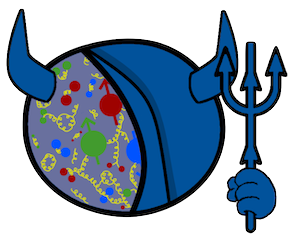Speaker
Description
The transversity distribution function, $h_1^{q}(x)$, encapsulates the transverse spin structure of the proton at the leading twist, where $x$ represents the longitudinal momentum fraction carried by the quark $q$. The extraction of $h_1^{q}(x)$ poses a formidable challenge due to its chiral-odd nature. Measurements of final-state di-hadron pairs in transversely polarized proton-proton ($p^\uparrow p$) collisions directly probe the collinear quark transversity via coupling with a chiral-odd interference fragmentation function, $H_1^{\sphericalangle, q}$. This coupling results in an experimentally measurable azimuthal correlation asymmetry, $A_{UT}$. The asymmetry originates from the interplay between the spin orientation of the fragmenting quark and the resulting di-hadron in the final state. Thus, it necessitates precise knowledge of unpolarized di-hadron fragmentation functions (FFs) to achieve a model-independent extraction of the transversity from these measurements. These FFs can be obtained by measuring the unpolarized di-hadron cross section in $pp$ collisions. We will present preliminary results on the $A_{UT}$ for $\pi^+\pi^-$ pairs using $p^\uparrow p$ data collected by the STAR experiment at a center-of-mass energy of $\sqrt{s} = 200$ GeV in 2015. Additionally, we will present preliminary results of the unpolarized $\pi^+\pi^-$ cross section using $pp$ data at $\sqrt{s} = 200$ GeV collected in 2012.

